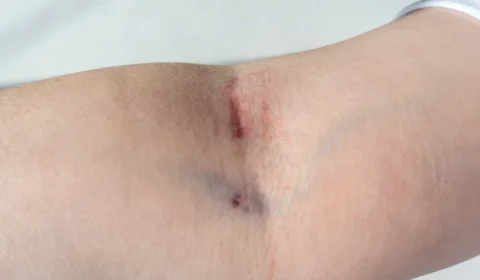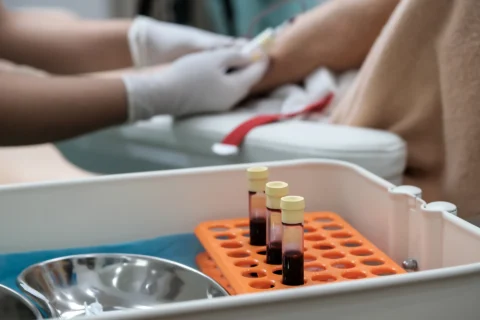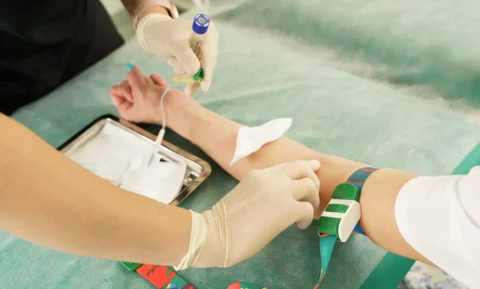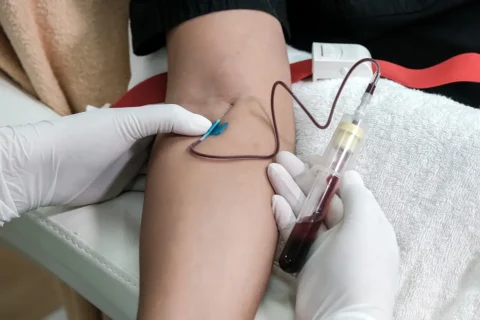One of the most common requests that dentists receive from their patients is to improve their smile – it can be through whitening their teeth, fixing their snaggletooth, or correcting their gummy smile. While some patients can be treated with common cosmetic dentistry techniques, others need facial injectables like Botox and dermal filler to achieve the gorgeous smile they want.
So can dentists undergo Botox training and perform this injectable treatment for their patients? Yes, dentists can take aesthetic medicine courses like Botox certification to offer more services to their patients. Some dental conditions are also best treated with Botox injections, like temporomandibular joint disorders (TMD).
Is it Legal for Dentists to Treat Patients With Botox?
According to the Plastic Surgery Statistic Report by the ASPS, Botox injection and soft tissue filler are two of the most popular minimally invasive cosmetic treatments in the country. They’re typically used to smooth fine lines and wrinkles on the face, but they also work for a variety of other cosmetic purposes like smile and lip enhancement.
Since a dental professional already has specialized knowledge of the muscles around the mouth, they’re already a good candidate for continuing dental education and advanced Botox courses.
Many states allow dentists to offer injectable treatments for cosmetic enhancements and medical purposes. But like any medical professional performing the treatment, dentists must undergo Botox and dermal filler training courses first.
Botox as an Add-On to Dentistry
Botox treatment is a popular facial aesthetics procedure so it’s only natural for most people to imagine consulting with a plastic surgeon or visiting a medical spa when the cosmetic treatment is mentioned. However, Botox is also a profitable add-on and worthwhile investment for a dental practice.
General dentistry already deals with nerves, muscles, and other facial structures so a licensed dentist already has adequate knowledge of facial anatomy. Root canals and tooth extractions are indeed different from Botox injections, but understanding the intricacies of facial anatomy gives dentists the advantage of effectively administering Botox to produce the best results for their patients.
Additionally, dental professionals already deal with other kinds of cosmetic injectable treatments every day so adding botulinum toxin injections to their services won’t be much different from what they already know.
Conditions That Dentists Can Treat With Botox
Botox is a useful treatment for dentists who are asked to reshape the lips of their patients for a better-looking pout or smile. The neurotoxin injection can be administered in the upper lip to prevent it from rising too high and revealing a gummy smile. In some cases, Botox is injected around the mouth to erase fine lines and wrinkles, making patients look younger as they show their smiles.
Aside from its cosmetic benefits, dentists also use Botox for treating or managing other conditions like:
- Jaw and Facial Pain – Trigeminal neuralgia causes intense, stabbing facial pain in patients. Botox injections are an effective pain management treatment for this condition because it blocks the pain signals from the brain, effectively reducing the intensity of facial pain felt by patients.
- Bruxism – Excessive teeth grinding and jaw clenching causes lots of dental problems like gum sensitivity, worn tooth enamel, and chipped teeth, so it’s important for patients to seek treatment immediately. When Botox is injected into the masseter muscle, it can help patients reduce teeth clenching and relieve other associated symptoms.
- Temporomandibular Joint (TMJ) Disorders – Any kind of dysfunction in the temporomandibular joint causes pain in the jaw and the muscles that control its movement. Botox helps relieve tension and pain caused by tight jaws by relaxing the facial muscles in the area.
The Problem With Dentists Injecting Botox
Dermatologists and plastic surgeons are usually considered the most qualified medical professionals when it comes to administering Botox, but dentists may also offer it to their patients as long as they’re trained and certified to do so.
The biggest problem with dentists administering Botox injections is that they’re limited to certain purposes. They’re only qualified and trained to inject the neurotoxin into treatment areas around the mouth and face, regardless if they’re for cosmetic or medical purposes. If you need Botox treatments for managing overactive bladders and sweat glands, it’s best to get the treatment from a Botox injector that specializes in these conditions.
Why You Should Consider Botox Aesthetics Training for Dentists
Botox is one of the many promising treatments in dental medicine that many practitioners consider adapting. With the growing demand for facial Botox, it’s time for dentists to undergo Botox training courses and offer their patients safe and effective treatment for different concerns and conditions.
- Dentists already have an extensive medical background and hands-on experience in administering injections into the most sensitive areas of the face.
- Botox injections are effective in treating and managing conditions like TMJ disorders and bruxism.
- Botox is a good complementary treatment for dentists who specialize in cosmetic dentistry.
- Offering Botox treatments allow dental clinics and practitioners to retain more loyal customers.
- Botox opens doors for new opportunities as it integrates general dentistry with facial aesthetics.
What to Look For in a Botox Training Course for Dentists
Like other medical professionals, dentists need to complete a Botox training course first before they’re allowed to offer the treatment to their patients. There are tons of institutions that offer this type of aesthetic training, so it might be difficult for dentists to find one that works best for them and their schedules.
- Instructor’s Accreditation – Looking for Botox training programs is a lot similar to selecting a dental school: you need to consider the courses included in the curriculum and the credibility of the instructor. Medical professionals with at least a decade of training and experience in providing the treatment usually make the best instructors for Botox courses.
- Training Time At Your Own Pace – Dentists are typically too busy to find the right time to attend training and seminars about Botox injections. Online aesthetics training courses let dentists learn at their own pace, encouraging them to complete the program when they’re ready. This also allows them to avoid additional costs that are usually incurred by expensive flights and hotel stays during in-person Botox training.
- Expertly Designed Curriculum – Another important factor to consider is how the Botox training curriculum is made. An expertly designed curriculum should include the latest advancements, show new techniques, and deeply explain facial anatomy. Marketing strategies for promoting Botox treatments aren’t required for most curricula, but it’s a useful addition that dentists and aestheticians can benefit from.
- Follow-Up Support After Training – Learning about Botox treatments doesn’t stop even after you complete your training. A good institution should introduce you to a support system and network of other practitioners who help each other improve their skills after finishing your aesthetics course.
Start Your Botox Training With Courses at FACE Med Store
FACE Med Store is a reliable supplier of quality medical equipment for hundreds of clinics and healthcare providers in the country. We strive to help our partners offer the best treatments for their patients by providing them with quality products at competitive prices.
Aside from medical tools and supplies, we also offer different online aesthetics courses with CME credits for medical practitioners who want to improve their skills and learn new techniques. Know more about our facial neuromodulator injections course and other online training programs by calling us today.






